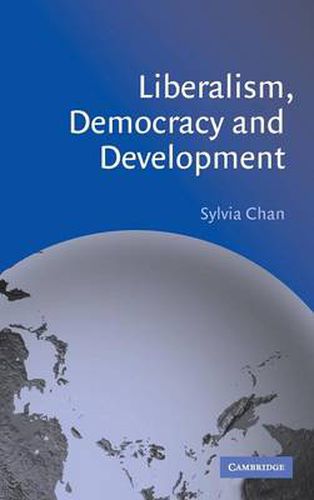Readings Newsletter
Become a Readings Member to make your shopping experience even easier.
Sign in or sign up for free!
You’re not far away from qualifying for FREE standard shipping within Australia
You’ve qualified for FREE standard shipping within Australia
The cart is loading…






Many commentators have assumed a close connection between liberal democracy and economic development. Sylvia Chan questions this assumption and suggests a new theoretical framework, in which liberal democracy is ‘decomposed’ into economic, civil and political dimensions that can be combined in different ways, allowing for a range of ‘institutional matrices’. She then shows, in a case study of Japan and the Asian newly industrialising countries, how these seemingly less democratic countries have enjoyed a unique mix of economic, civil and political liberties which have encouraged economic development, without the need to share the institutional structures and cultural values of the West. Chan’s model therefore provides a re-evaluation of the institutional capacities needed to sustain a competitive economy in a globalising world, and develops a more sophisticated understanding of the democracy-development connection.
$9.00 standard shipping within Australia
FREE standard shipping within Australia for orders over $100.00
Express & International shipping calculated at checkout
Many commentators have assumed a close connection between liberal democracy and economic development. Sylvia Chan questions this assumption and suggests a new theoretical framework, in which liberal democracy is ‘decomposed’ into economic, civil and political dimensions that can be combined in different ways, allowing for a range of ‘institutional matrices’. She then shows, in a case study of Japan and the Asian newly industrialising countries, how these seemingly less democratic countries have enjoyed a unique mix of economic, civil and political liberties which have encouraged economic development, without the need to share the institutional structures and cultural values of the West. Chan’s model therefore provides a re-evaluation of the institutional capacities needed to sustain a competitive economy in a globalising world, and develops a more sophisticated understanding of the democracy-development connection.